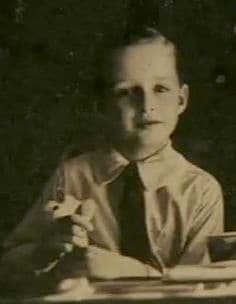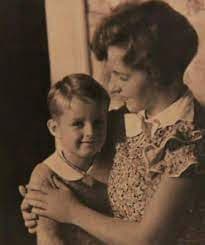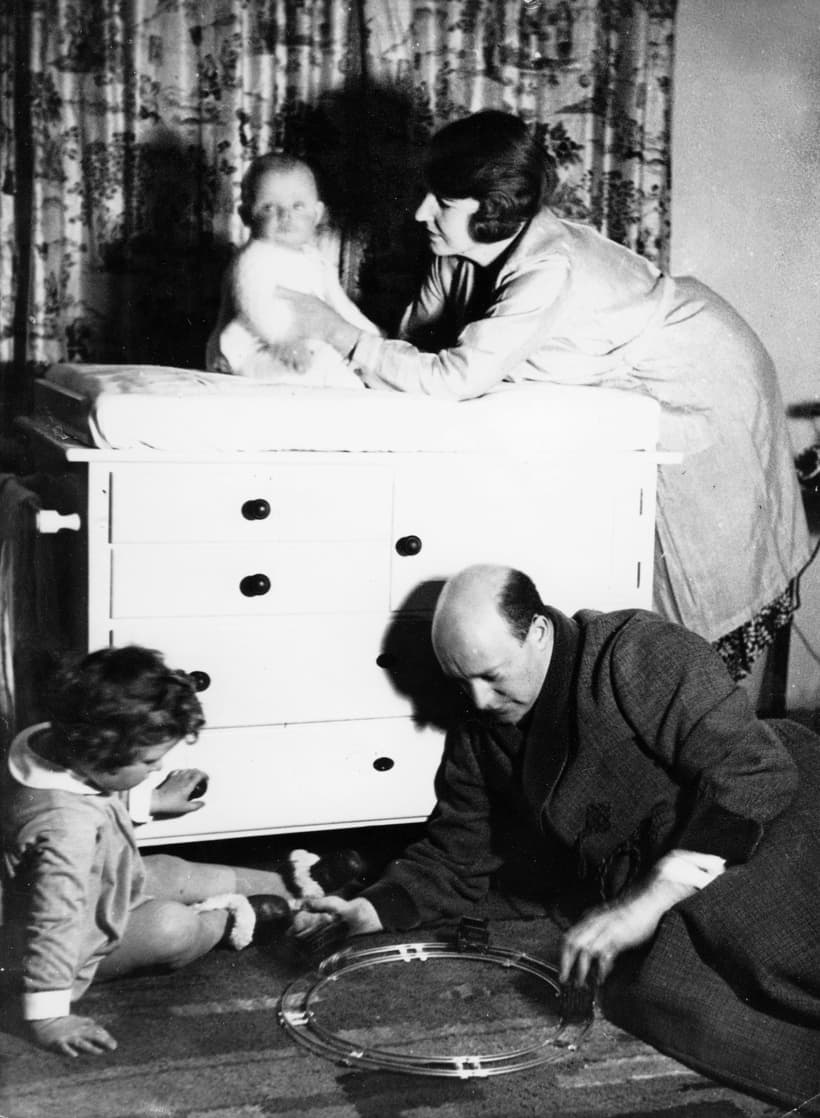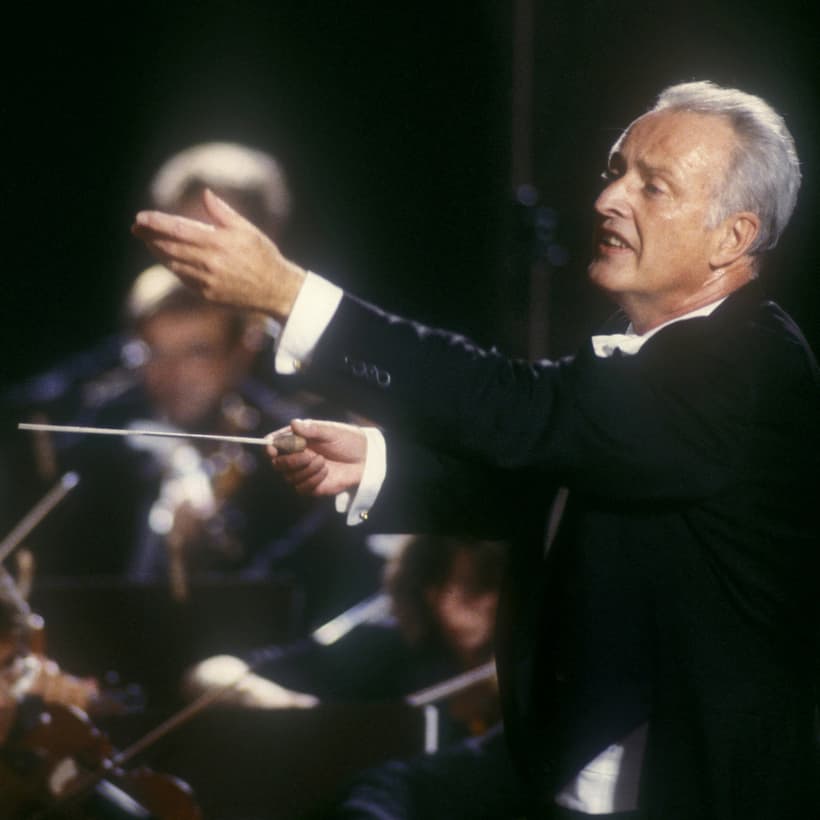For a good number of commentators and experts, Carlos Kleiber, born on 3 July 1930 in Berlin, is regarded as among the greatest conductors of all time. “His gifts are musical and dramatic insight, analytical abilities, technique, and his methods of explaining himself make him the greatest conductor of our day.” Plácido Domingo relates, “When I work with him, I feel that he knows why the composer wrote every note, treated every phrase, conceived of every bit of orchestral color in a particular way.”

Carlos Kleiber as a boy
Carlos was the son of the eminent Austrian conductor Erich Kleiber and his American wife Ruth Goodrich. The family emigrated to Buenos Aires in 1935, and it was soon becoming obvious that young Carlos had exceptional musical talents. A biographer writes, “Carlos had an extremely brilliant mentality, that freedom, spontaneity. He was an ideal youth, who was enormously gifted. Something extraordinary.” His father, however, actively discouraged his son from pursuing a musical career. As he once wrote to a friend, “I am longing to see one of my son’s compositions, what a pity the boy is musically talented.”
Carlos Kleiber Conducts Beethoven’s Symphony No. 7 in A Major, Op. 92
By all accounts, Erich Kleiber was “gigantically vain, who felt that he never had the worldwide esteem he deserved, and he was extremely sensitive about comparisons with other conductors, including his son.” Carlos described his mother as “a very strong woman, and very protective of her husband. Nothing could come between them, even the children.”

Carlos Kleiber and his mother
His sister Veronica remembered, “our mother confessed to me later that when Carlos was born, he was small and she thought that he wouldn’t survive because he was so weak and skinny. However, as a little person, he was very strong-willed, and he liked to give orders.” A colleague remembered that “Carlos had a Lady Macbeth of a mother,” which greatly contributed to his insecurity. After giving a masterful performance of the Rosenkavalier in Munich, everybody went backstage to congratulate him. That evening Kleiber was conducting with the score, and to everybody’s embarrassment, his mother commented, “I thought you knew this score!”
Carlos Kleiber Conducts Strauss’ Rosenkavalier, (Act III excerpt)
At a very young age, Carlos declared that he wanted to compose something. “He was wonderful at learning, both languages and anything else, and he learned musical notation from his mother.” Proudly he announced, “Now I am going to try and see what I can compose.” After spending years of Nazi terror in Argentina, the Kleiber family was free to return to Europe after WWII. However, Carlos was only fifteen and the family wanted him to finish high school. In addition, Carlos traveled widely with his father, “serving as amanuensis and valet.”

The Kleiber family
It was in late 1948 that Carlos made his professional debut in the orchestra pit, but not as a conductor. Apparently, he was playing second timpani in a performance of Götterdämmerung conducted by his father. At the age of 19, Carlos, with the permission of his father, moved to Zurich. In fact, Erich Kleiber “forced his son to Zurich and into chemistry,” and Carlos studied for a semester and a half at the Technische Hochschule. A family friend writes, “It was an uneasy fit. Carlos had a brilliant mind for learning, but little interest in chemistry.”
Carlos Kleiber Conducts Brahms’ Symphony No. 4 in E minor, Op. 98 “Allegro non troppo”
Erich Kleiber was not pleased and asserted “that Carlos was wasting time, and he brought him home to Buenos Aires.” Sensing that music was becoming increasingly important for his son, Erich decreed, “that Carlos would study theory and harmony.” Yet, Carlos was not really interested in piano and harmony, and he probably didn’t study analysis or counterpoint either. Carlos did not have absolute pitch, “but his relative pitch was speedy and reliable.” He started to learn how to read scores, and quickly taught himself to read scores at an unusually speedy and high level.

Carlos Kleiber in 1987
A biographer writes, “the standard lore is that he made some sort of debut as a conductor around 1952 in South America.” There is no corroborating evidence for that particular claim, and Carlos was deliberately vague about his early conducting experiences. It might well be that he wanted to suggest a level of prior experience before he started his career in Europe. However, Charles Barber has proposed a very sensible alternative explanation. “As with his multiple languages and his vast command of literature and poetry, Carlos was an autodidact, who was almost wholly self-taught. As a conductor, he was his own creation.”
For more of the best in classical music, sign up for our E-Newsletter

Thank you for this excellent and timely piece about CK. May I add a point to its many?
He’s often said, accusatorially, to have had “a small repertoire”. This is not so. His knowledge of repertoire was enormous. His selection of which music to perform, in concert or in opera, was relatively small, and is I believe a wholly separate matter. In the 15 years I knew him, we often talked about new music as well.
When at Stanford, I composed a work for chamber orchestra, ‘Paralysis 69, Dedicated to the Memory of FDR’, and gave it at a campus concert. It was a parody of 20th C clichés, and included send-ups of numerous contemporary works. He recognized every one of them, including the theme song for ‘Hockey Night in Canada’! He had an incredible ear, and got all the jokes. You would have liked him. Thanks again.
Perhaps the answer to this question is known to members of this group, which I only recently joined, but WHY was it that this supreme musician, who knew a huge repertory, limited himself to such a small one both in the opera house and in the concert hall? And do you, for example, know WHY he chose from among Beethoven’s nine the 4th, 5th. and 7th as distinct from, say, the 3rd, 6th, and 8th which seem equally “worthy” of his efforts? In lieu of an answer could you direct me to a book or a doc in which these matters are seriously considered. Thank you in advance.
I’m sorry to be slow in reply, but saw yours just now. You may know that CK did in fact perform the Pastorale, once only, at a concert he deemed a failure. His son Marko recorded it on a small device, and it is available on Orfeo. Bayerische Staatsorchester, Munich, 7 November 1983. I once tried to talk him into a Ninth, premised on a bribe of cookies. It proved a waste of cookies, and no Ninth was ever baked. But as Haitink once wisely pointed out, “Don’t let the small repertoire fool you. His knowledge of music is immense.” For Carlos, rarity had currency.